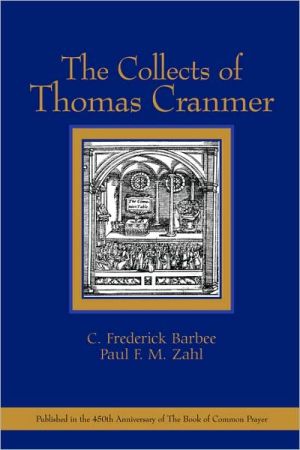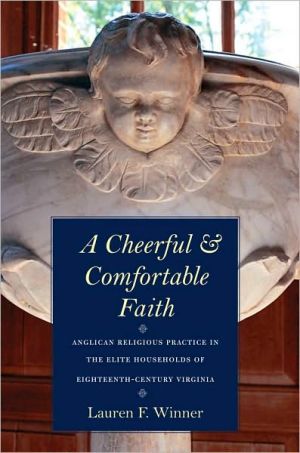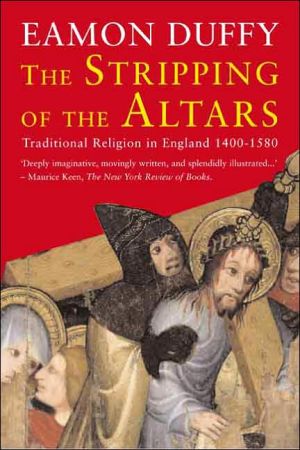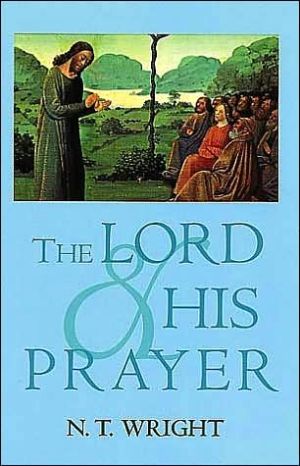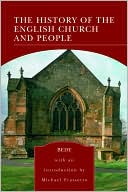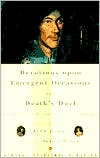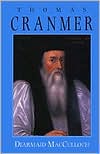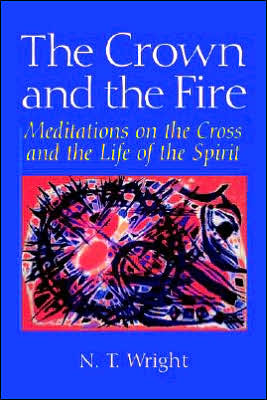The Collects of Thomas Cranmer
Thomas Cranmer's Prayer Book of 1549 is a foundational document of the Anglican Church and a priceless part of English-speaking Christianity. Cranmer's unique gift of blending theological substance with simple, humble, and moving clarity has made the Collects (prayers) essential not only to the English liturgy but also to the pastoral tradition of the church: these prayers still remain a deep source of inspiration for Christians enmeshed in the everyday trials and testings of life. Published...
Search in google:
Thomas Cranmer's Prayer Book of 1549 is a foundational document of the Anglican Church and a priceless part of English-speaking Christianity. Cranmer's unique gift of blending theological substance with simple, humble, and moving clarity has made the Collects (prayers) essential not only to the English liturgy but also to the pastoral tradition of the church: these prayers still remain a deep source of inspiration for Christians enmeshed in the everyday trials and testings of life. Published on the occasion of the 450th anniversary of the Book of Common Prayer, The Collects of Thomas Cranmer presents this spiritually rich material in its original form and order. Compiled and presented for devotional use by C. Frederick Barbee and Paul Zahl, Cranmer's Collects are each followed by succinct commentary on their historical context and an insightful meditation crafted with contemporary Christians in mind. Anglican Journal (Canada) "This present book is designed to place historical interest within a devotional framework. Each collect is followed by a succinct commentary on its historical context and a short meditation with the contemporary Christian in mind. There is an excellent foreword which outlines the idea of the collect and analyzes the classical form—which could profitably be studied by anyone trying to write prayers today—and a short historical and biographical introduction. This would make a good dipping resource for summer spiritual reading—not too heavy while still offering substantial food for thought."
Introduction (from pages xiii-xvii)\ \ Cranmer's genius was not on the order of Augustine, Luther, or Mozart. He did not have the wide-ranging and confident breadth and brilliance of the first two nor the incredible focus and depth of Mozart. Rather, his genius consisted of that rare and mysterious virtue, humility.\ This humility was neither passive nor pusillanimous as his uncomprehending critics have falsely charged. Diarmaid MacCullough in his magisterial biography has shown the caution and conservative spirit that led him only gradually to the beliefs that were to manifest themselves in the English Prayer Book. Cranmer's astonishing blend of self-effacement and persistence in the service of faith accounts for the care and discipline which produced the single greatest combination of liturgical forms in the Church's history. This perduring contribution, which was not possible during the reign of Henry VIII, could only have been fulfilled under the sympathetic and royal authority of Edward VI.\ Cranmer's consistent obedience to "duly constituted" royal authority ("It is not given to private citizens to amend what is amiss but to quietly suffer what they cannot change") was a frustration under Henry, whose theology was medieval Catholic and not that of the Reformers. However, Cranmer saw the principle of obedience to royal authority as firmly grounded in Scripture and in the history of Christendom since Constantine. This loyalty to the crown and his selfless service seemed to evoke a loyalty in kind from Henry. It was Henry who saved him from several exceedingly dangerous plots against his life. Cranmer was too reticent and unschooled in Machiavellian Tudor politics to defend himself effectively in the arena of raw power ego conflicts. He had even been rebuked by Henry for the excessive magnanimity he had shown to his enemies in the rapid power shifts of his age.\ The humility that divested his ego of self-righteous concerns focused his passion in service to his Lord's Kingdom amid the ambiguities and vicissitudes of earthly kingdoms. Obedience to the former must, according to Scripture (Romans 13:1-7, Titus 3:1), be channeled in patience through the latter. This was the basis for Cranmer's obedience to royal authority, an obedience which sustained him through the frustrations of Henry's reign and released his incomparable creativity to produce, during the reign of Edward VI, the two Prayer Books as well as the Forty-Two Articles and the Book of Homilies. But it was, of course, this very obedience which caused him such excruciating agony under the Roman Catholic Queen, Mary, when his consistent policy of commitment to "the powers that be [which] are ordained of God" (Romans 13:1) blew up in his face. Queen Mary demanded that he not only submit (which he was willing to do even before imprisonment), but also to abjure and deny publicly all that he had accomplished and sincerely believed, something Henry had never demanded.\ Cranmer had publicly fought and voted against Henry's notorious Six Articles Act. They enshrined in law the worst of unreformed medieval Catholicism. This was not the action of a sycophant any more than were his lonely and ardent pleas for the lives of Thomas More, Bishop Fisher, and Anne Boleyn. But when the Articles became law he saw it as his biblical duty to submit. Henry did not demand that he deny his beliefs, only that he submit to the law. Queen Elizabeth was later to announce her firm policy that she would "not build windows into a man's soul" (a policy that Professor Powel Mills Dawley claimed to be an essential principle of the Anglican Reformation).\ The policy of Queen Mary and Cardinal Pole was not merely to require submission to the reestablishment of Roman Catholicism and to discard the Reformation Articles and Prayer Book, but to use Cranmer to blacken the name of the Reformation itself. The story of the last two years of Cranmer's life has been told by his contemporary John Foxe. After two and one half years' imprisonment, enduring constant interrogation over some thirty months, watching his friends burn, and being offered the hope of saving his life on the condition of recanting, he finally succumbed and signed an abject confession and recantation. Brought to public trial to read this document, he astonished the witnesses by repudiating his confession and affirming the faith we now see in his prayers and teachings.\ He was quickly seized and brought to the stake where he was burned, but not before freeing his hand and putting it first in the flame, "this hand that offendeth" (which had signed the earlier recantation). Diarmaid MacCullough, in his appreciation of Cranmer's ordeal, makes the observation, "After the miserable history of brain-washing and interruption in the twentieth century, we are better placed than historians in the heyday of Victorian Liberalism to understand the sort of pressures to which Cranmer had been subjected."\ Cranmer's story has been a part of English-speaking heritage since the publication in 1563 of Foxe's Book of Martyrs. Cranmer's unparalleled contribution in the production of the Prayer Book has been well appreciated. However, anachronistic and immature judgments of Cranmer's character have tended to obscure from us the personal genius of humility without which we are unable to appre-hend the quality of his gift to us.\ An example of Cranmer's unique gift of blending theological substance with simple and moving clarity is the Collect traditionally used on the Second Sunday in Advent.\ Blessed Lord, which hast caused all holy Scriptures to be written for our learning; grant us that we may in such wise hear them, read, mark, learn, and inwardly digest them; that by patience and comfort of thy holy word, we may embrace, and ever hold fast the blessed hope of everlasting life, which thou hast given us in our savior Jesus Christ.\ This prayer has been so universally appreciated across denominational lines (by people mostly unaware of its origin) that the Second Sunday in Advent was chosen by Protestant bodies throughout the world as "Bible Sunday." Like the General Confession below, this is no mere created piece of individual eloquence, but a compilation of phrases and significant terms of Scripture.\ Cranmer's prayers are saturated with Scripture and they are compiled with such economy and clarity that in no sense could one say that they had been merely "written." The very best example is the General Confession in the services of Morning and Evening Prayer:\ Almighty and most merciful Father; We have erred, and strayed from thy ways like lost sheep. We have followed too much the devices and desires of our own hearts. We have offended against thy holy laws. We have left undone those things which we ought to have done; And we have done those things which we ought not to have done; and there is no health in us. But thou, O Lord, have mercy upon us, miserable offenders. Spare thou those who are penitent; According to thy promises declared unto mankind in Christ Jesus our Lord. And grant, O most merciful Father, for his sake; That we may hereafter live a godly, righteous, and sober life, to the glory of thy holy Name. Amen\ Professor Massey Shepherd has pointed out that this confession is based upon St. Paul's analysis of sin in Romans 7:8-25. In order of their occurrence, the sources are from Isaiah, Psalms, I Peter, Proverbs, Jeremiah, II Chronicles, Matthew, Psalms, Luke, Psalms, Nehemiah, Psalms, Romans, I John, Titus, and John.\ The General Confession clearly shows Cranmer's genius of humility. His vision was so unhampered and unclouded by personal ambition or worldly concerns that he could absorb the revelation of God's Word written, digest it in his mind, and appropriate it in his heart. Revelation then flowed into the simple economy of one paragraph with the aforementioned phrases from sixteen biblical sources in eight short sentences. Subsequent generations have been given a unique biblical vision through a vehicle hammered out in the blend of thought and passion, trust and faith of Cranmer's life.\ The theme of repentance runs through Cranmer's liturgy. His very character was rooted and founded in humility before God. This is why God continues to speak and reveal himself to millions around the world (many who have never heard Cranmer's name) after 450 years of using the traditional English liturgy. Not even through the contributions of Augustine, Luther, Calvin, or Wesley does the revelation of God come so unclouded and uncolored by the personality of the medium.\ The personality and character of Cranmer is marked by a Christian virtue that a secular age cannot fathom. Humility before God is a transcendent and eschatological virtue that depends upon the "sure and certain hope" of eternal life. Before God (coram Deo) we can never depend on our own worth but on the mercies of Christ.\ The figure of the Cardinal in Bridget Boland's play The Prisoner is asked by his interrogator why he does not choose to take his own life rather than face the multitude to whom he has been manipulated into confessing falsely to horrendous crimes and who are now judging him. His reply is simply, "He who made me is he who will be my judge." It is ironic that amendments to the play have eliminated the factors of the Cardinal's weakness and the movie was banned in Ireland. This humility before God is seen in a Sadducean (no resurrection) age as weak and obsequious. Yet, for Cranmer and for other believers, the mercy and forgiveness of God is the final and everlasting word for Christians.\ Cranmer's sainthood cannot be established on the grounds of sinlessness or denial of weakness, which is an adolescent expectation. He loved life and retained a real measure of the fear of death. The Church, quite early, learned a danger of martyrdom as escape, when some were tempted to give their lives, not so much as witness, but as release from the ambiguities of life and to gain the joys of heaven prematurely.\ The Christian paradox, that God uses the weak to confound the strong, can be seen in the life of Cranmer, where strength is above weakness. However, the paradox can be read the other way. There is strength beneath weakness which is obscure to a secular age (cf. II Corinthians 11:30ff.)\ There is something everlastingly encouraging about Cranmer's faithful death. All who suffer injustice, betrayal, and defeat of what seems fair and good and according to the purpose of God himself can consider the mind of Cranmer as he died. The burning, dying Cranmer saw nothing with his natural eyes but a bleak Friday with the complete and utter failure and destruction of all he believed in. The unseen Easter reality was Queen Elizabeth's restoration of all his accomplishments and their abiding nurture over subsequent centuries. They were things hoped for but unseen by Cranmer, perceived only by the eye of faith and a heart of hope, faith and trust in the providence of God that gave Cranmer his courage in those last hours.\ C. FitzSimons Allison\ XII Bishop of South Carolina\ "
\ Anglican Journal (Canada)"This present book is designed to place historical interest within a devotional framework. Each collect is followed by a succinct commentary on its historical context and a short meditation with the contemporary Christian in mind. There is an excellent foreword which outlines the idea of the collect and analyzes the classical form—which could profitably be studied by anyone trying to write prayers today—and a short historical and biographical introduction. This would make a good dipping resource for summer spiritual reading—not too heavy while still offering substantial food for thought."\ \ \ \ \ Methodist Recorder (U.K.)This beautifully produced book...will appeal to all who are deeply caught up in the trials and problems of life. It is splendid value and would make a perfect Confirmation gift or indeed a gift at any time for almost anyone, affording a lifetime of thoughtful pleasure and study.\ \ \ Sixteenth Century JournalFor those who are interested in the way which the sixteenth-century Reformation interacts with contemporary theological concerns, there is much to ponder in this slim volume.\ \ \ \ \ Library JournalThis lovingly prepared edition of the Anglican collects, or short prayers, which first appeared in this form in the Book of Common Prayer of 1549, should pique the interest of both religion scholars and devout communicants It contains not only the prayer texts as translated or composed by Protestant hero Cranmer and his collaborators but also a sensitive introduction by C. Fitzsimmons Allison, the bishop of South Carolina, and suggestions for meditation inspired by each of the collects. Recommended for most collections, especially those strong in Christian spirituality.\ \
